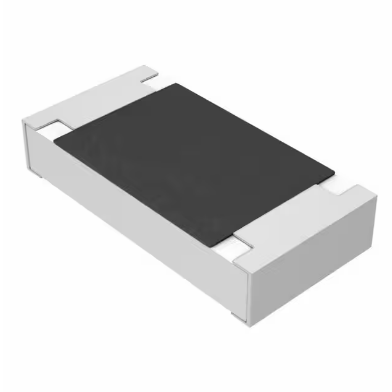In the intricate tapestry of modern technology, magnetic sensors often go unnoticed, yet they play a pivotal role in shaping our daily lives. From smartphones that navigate us through unfamiliar territories to electric vehicles that revolutionize transportation, magnetic sensors are the silent guardians, ensuring precision, efficiency, and safety. Today, let's delve into the fascinating world of magnetic sensors, uncovering their principles, applications, advancements, and the future they hold.

Introduction: The Magnetic Field and Its Sensors
At the heart of magnetic sensors lies the concept of magnetism—a fundamental force that exists in nature, causing certain materials (known as magnets) to attract or repel each other. Magnetic sensors harness this property, detecting and measuring changes in magnetic fields, converting them into usable electrical signals. These sensors come in various forms, each tailored to specific tasks, but they all share a common goal: to translate the invisible world of magnetism into actionable data.
Types of Magnetic Sensors
Hall Effect Sensors
One of the most widely used magnetic sensors is the Hall Effect sensor. It operates on the principle that when a current-carrying conductor is placed perpendicular to a magnetic field, a voltage (Hall voltage) is generated across the conductor's width. This effect is leveraged to measure the strength and direction of magnetic fields, making Hall Effect sensors ideal for applications such as motor commutation, position sensing, and speed detection.
Magnetoresistive (MR) Sensors
Magnetoresistive sensors exploit the change in electrical resistance of certain materials in response to a magnetic field. There are several types of MR sensors, including Anisotropic Magnetoresistive (AMR), Giant Magnetoresistive (GMR), and Tunnel Magnetoresistive (TMR) sensors. TMR sensors, in particular, offer exceptional sensitivity and accuracy, making them popular in high-precision applications like hard disk drives and biometric authentication systems.
Inductive Sensors
Inductive sensors work by detecting changes in the inductance of a coil when a ferromagnetic object (one that can be magnetized) enters its vicinity. These sensors are robust and can operate without direct contact, making them suitable for industrial automation, fluid level detection, and metal detection systems.
Fluxgate Sensors
Fluxgate sensors are highly sensitive devices that use a small magnetic core surrounded by a wire coil. An alternating current in the coil generates a magnetic field that interacts with the core's magnetization, producing an output signal proportional to the external magnetic field. They find applications in geophysics, navigation systems, and space exploration due to their ability to measure weak magnetic fields accurately.
Applications of Magnetic Sensors
Smartphones and Wearables
Magnetic sensors in smartphones and wearables, such as compasses and gyroscopes, enable location-based services, augmented reality experiences, and precise motion tracking. They also assist in orientation-dependent features like screen rotation and gesture recognition.
Automotive Industry
The automotive sector relies heavily on magnetic sensors for various purposes, including anti-lock braking systems (ABS), traction control, and electric vehicle (EV) motors. In EVs, magnetic sensors monitor motor position and speed, optimizing power delivery and ensuring smooth operation.
Industrial Automation
From position sensing in robotic arms to detecting metal objects in conveyor belts, magnetic sensors are essential in industrial automation. They help automate processes, increase efficiency, and reduce errors, making factories safer and more productive.
Security and Surveillance
Magnetic sensors are also used in security systems, particularly for door and window sensors that alert homeowners or security personnel when unauthorized entry is attempted. Additionally, they play a role in anti-theft devices for vehicles and high-value goods.
Healthcare
In the healthcare industry, magnetic sensors find applications in medical imaging, such as magnetic resonance imaging (MRI) machines, which use strong magnetic fields to create detailed images of internal organs. They also contribute to the development of wearable medical devices for monitoring vital signs and assisting in rehabilitation.
Advancements and Future Prospects
Recent advancements in material science, microelectronics, and nanofabrication techniques have significantly improved the performance of magnetic sensors. For instance, the development of novel materials like graphene and topological insulators promises even higher sensitivity and lower power consumption. Additionally, integration with advanced algorithms and machine learning techniques is enabling magnetic sensors to perform more complex tasks with greater accuracy.
Looking ahead, magnetic sensors will continue to play a crucial role in shaping the future of technology. With the rise of the Internet of Things (IoT), autonomous vehicles, and wearable devices, the demand for highly sensitive, low-power, and reliable magnetic sensors is expected to soar. Furthermore, their potential applications in emerging fields like quantum computing and spintronics suggest that the future of magnetic sensors is as exciting as it is unpredictable.
Conclusion
Magnetic sensors, though often overlooked, are indispensable components of modern technology. Their versatility and precision have enabled groundbreaking innovations across industries, from smartphones to electric vehicles and beyond. As we move towards an increasingly connected and automated world, the importance of magnetic sensors will only grow. With continuous advancements in materials, design, and integration with advanced technologies, the future of magnetic sensors promises to be as fascinating as the magnetic fields they detect.






 +86 13691825231
+86 13691825231 jerry@srdic.cn
jerry@srdic.cn


